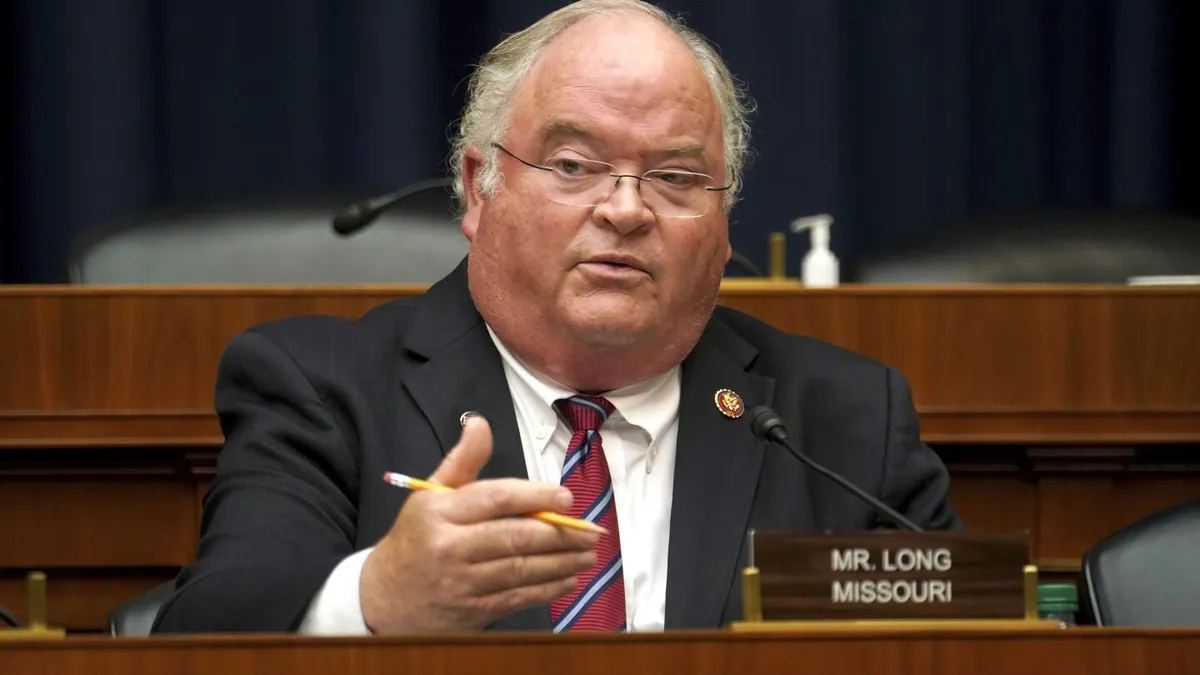
President Donald Trump has made headlines with his recent decision to remove former U.S. Representative Billy Long from the position of IRS commissioner. This significant change occurred less than two months after Long's confirmation, as confirmed by a White House official on Friday. The reasons behind Long's abrupt dismissal remain unclear, marking him as the shortest-tenured IRS commissioner confirmed by the Senate since the inception of the position in 1862.
In a social media announcement, Long expressed gratitude for his time in the role, stating that Trump has nominated him for an ambassadorship. "It is an honor to serve my friend President Trump, and I am excited to take on my new role as the ambassador to Iceland," he wrote on X. Long emphasized his commitment to advancing Trump's agenda, declaring, "Exciting times ahead!"
Following Long's departure, Treasury Secretary Scott Bessent will assume the role of acting IRS commissioner. This appointment comes amidst significant turmoil within the IRS, which has experienced considerable turnover since the beginning of Trump's second term. Prior to Long's confirmation in June, the IRS had cycled through four acting leaders and has lost approximately a quarter of its staff due to initiatives aimed at reducing waste, fraud, and abuse.
Upon his confirmation, Long communicated his intentions for the IRS, expressing a vision to foster a new culture within the agency. "In my first 90 days, I plan to ask you, my employee partners, to help me develop a new culture here," Long stated. "I’m big on culture, and I’m anxious to develop one that makes your lives and the taxpayers’ lives better." Unfortunately, this vision was never realized, as Long did not reach the milestone of his first 90 days in office.
Long's appointment as IRS commissioner was considered unusual for several reasons. During his tenure in Congress from 2011 to 2023, he sponsored legislation to eliminate the IRS altogether. His background as a former auctioneer raised questions about his qualifications for a role centered around tax administration. Despite these concerns, Long was confirmed by a narrow Senate vote of 53-44, amidst Democratic apprehensions regarding his past affiliation with a firm that promoted a fraudulent coronavirus pandemic-era tax break and campaign contributions received following his nomination.
After leaving Congress, Long attempted an unsuccessful bid for the U.S. Senate in 2022 and subsequently collaborated with a firm that dealt with the employee retention tax credit. This program faced scrutiny and was ultimately shut down after then-IRS Commissioner Daniel Werfel identified it as fraudulent. Democrats have since called for a criminal investigation into Long's connections to various alleged tax credit loopholes, with accusations that firms linked to him misled investors into spending millions on fraudulent tax credits.
The IRS has faced a series of challenges, including leadership changes that preceded Long's tenure. One acting leader resigned due to controversy surrounding a deal between the IRS and the Department of Homeland Security related to sharing immigrants’ tax data with Immigration and Customs Enforcement. Another acting leader's appointment sparked a notable public dispute involving former Trump adviser Elon Musk and Scott Bessent.
This ongoing instability within the IRS raises concerns about the agency's effectiveness and its ability to fulfill its mission of tax collection and enforcement amidst a rapidly changing political landscape. As the IRS continues to navigate these challenges, the appointment of a permanent commissioner will be closely watched by both lawmakers and taxpayers alike.